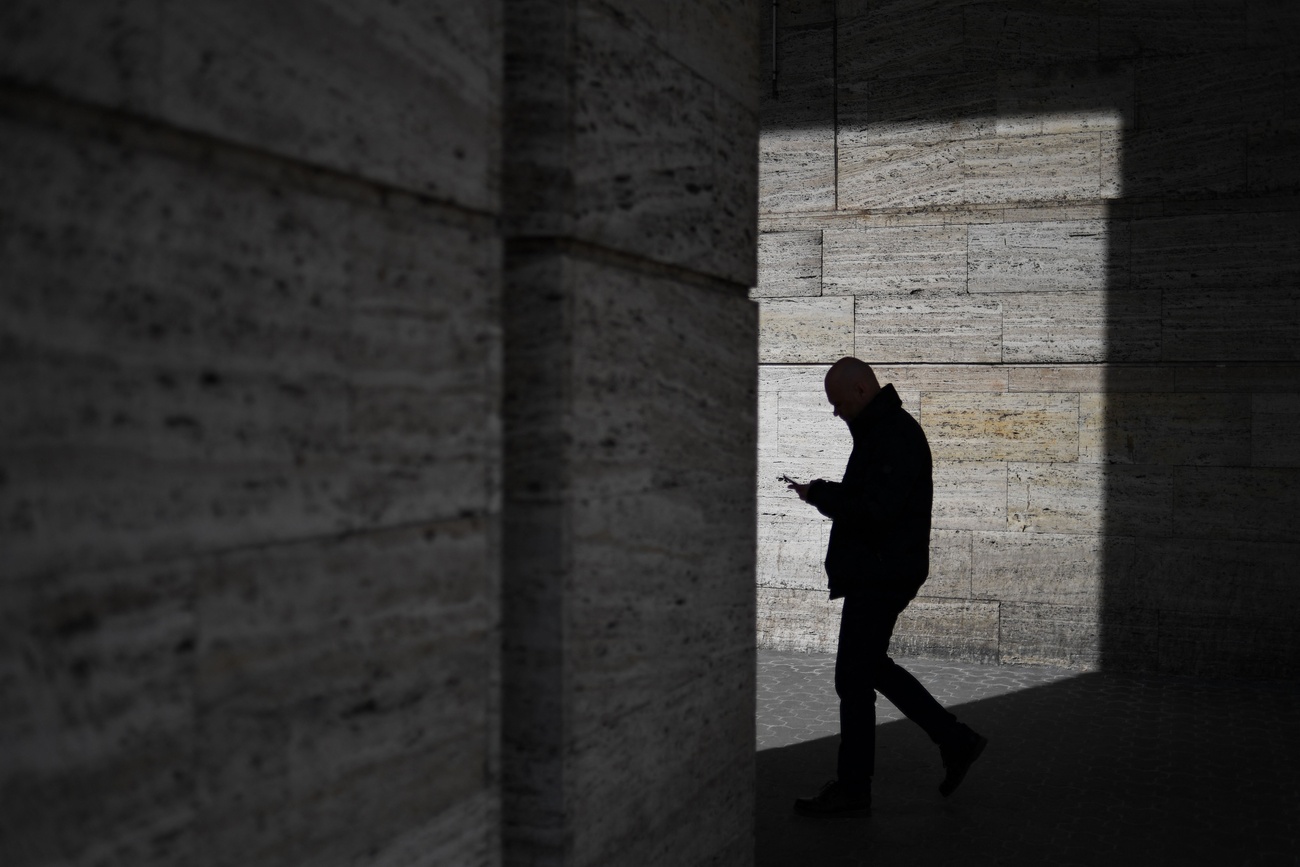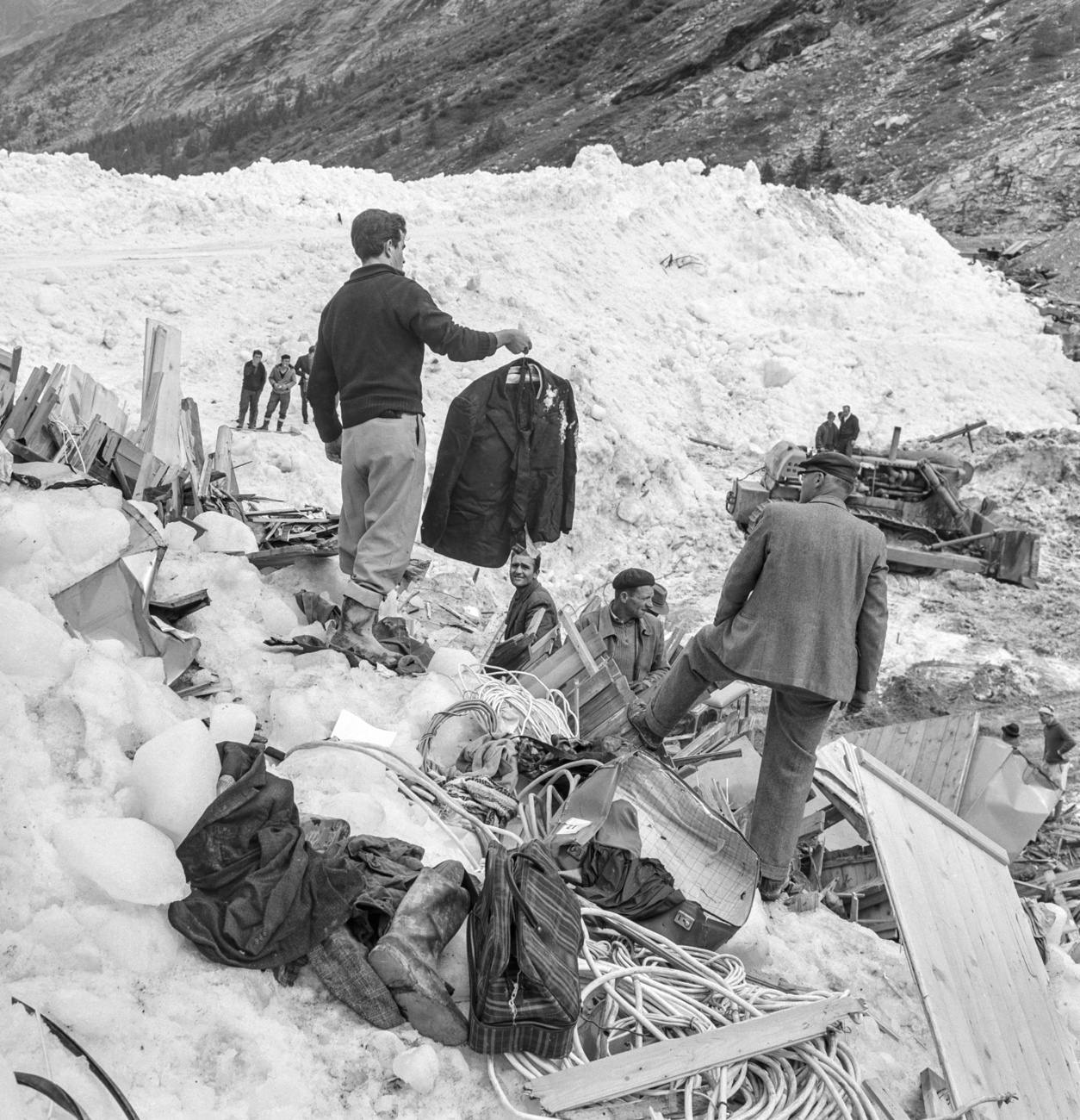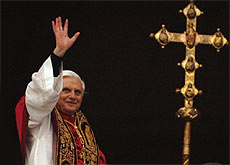
More of the same expected from new pope

The election of Joseph Ratzinger as the next Pope has dampened hopes of reform in the Roman Catholic Church.
While Swiss Catholic bishops welcomed the news, other churches and religious faiths took the view that the conservative theologian would likely reinforce, rather than alter, Church doctrine.
Vatican observer Hans-Peter Röthlin said he was convinced the new pontiff “would positively surprise many believers”, but others – even within the Church – expressed doubts that a man perceived as a stiff theologian could change.
Xavier Pfister, head of information for the church in Basel, said he believed there was little chance that “a theologian could become a man of the people”.
The Swiss Bishops’ Conference said it hoped for further progress towards Christian unity under Benedict XVI, but the country’s Protestants were more sceptical.
In 2000 it was Ratzinger, as head of the Congregation of the Doctrine of the Faith, who drafted the declaration Dominus Iesus, which affirmed the supremacy of the Catholic Church and dealt a blow to ecumenism.
Bad feeling
The declaration, which was endorsed by the late Pope John Paul II and made doctrine, angered the Orthodox and Protestant churches, which considered they had been relegated to a lower status.
The bad feeling has never entirely gone away.
Joël Stroudinsky, who heads the Protestant Church of Geneva, described Ratzinger’s election as “a black day for ecumenism”.
“The election of the author of this document is a troubling choice from an ecumenical viewpoint,” he told the Tribune de Genève newspaper.
The media spokesman for the Federation of Swiss Protestant Churches, Simon Weber, was less critical.
He said he was waiting with interest to see what would happen, but stressed that if the Vatican were serious about seeking common ground it would have to recognise the Protestant churches as churches in their own right and not as “ecclesial communities”.
Katharina Hoby, a woman vicar at the Reformed Church in Zurich, said Ratzinger’s appointment had filled her with fear and disappointment.
“I had hoped so much that a progressive man would be chosen,” she told Zurich’s Tages Anzeiger newspaper. “Not someone who gets gooseflesh at the thought of women priests, easing the celibacy rule and contraception.
“With Ratzinger, we are going to back to the Middle Ages.”
Hopes
Switzerland’s Jewish community was more optimistic about the future under Pope Benedict, pointing out that as he had been close to Pope John Paul he could be expected to follow the same line of reconciliation with other faiths.
Pope John Paul was the first head of the Catholic Church to visit a synagogue and to attend a memorial service for victims of the Holocaust at the former Nazi concentration camp of Auschwitz.
To mark the start of the new millennium he paid an official visit to the Holy Land in 2000 aimed at encouraging reconciliation between the faiths.
“We hope that Pope Benedict XVI will follow the path of dialogue with the Jewish people as his predecessor John Paul II did,” the Federation of Swiss Jewish Communities said in a statement.
For their part Swiss Muslim leaders, who were encouraged by Pope John Paul’s visit to the Middle East and his sympathy towards the plight of the Palestinians, were concerned that the momentum begun by the previous pope would be lost under his successor.
“We are afraid that [the Church’s] dialogue with the Muslim world will remain superficial and not be extended,” said Rafic Ouardiri, spokesman of the Geneva mosque.
swissinfo
Church membership in Switzerland, according to the 2000 census:
41.8% Roman Catholic
35.3% Protestant
4.3% Muslim
2.8% other (Orthodox Christian, Hindu, Buddhist, Jewish)
11.1% none

In compliance with the JTI standards
More: SWI swissinfo.ch certified by the Journalism Trust Initiative






































You can find an overview of ongoing debates with our journalists here . Please join us!
If you want to start a conversation about a topic raised in this article or want to report factual errors, email us at english@swissinfo.ch.